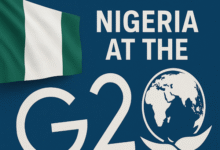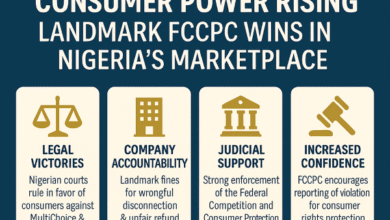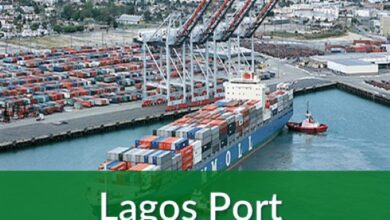$1 Trillion Ambition Needs Insurance Backbone – NCRIB Tells Tinubu

As Nigeria intensifies efforts to transform its economy into a $1 trillion powerhouse by 2030, the Nigerian Council of Registered Insurance Brokers (NCRIB) is urging the Tinubu administration to place insurance at the heart of national economic strategy—not as an afterthought, but as a catalytic pillar of sustainable growth.
Speaking in Lagos, Tope Adaramola, NCRIB’s Executive Secretary, said that without bold reforms and stronger institutional support, Nigeria risks sidelining a sector with immense potential to drive resilience, unlock investment, and enhance national productivity.
“Insurance is not a luxury—it is an enabler,” Adaramola declared. “If Nigeria truly seeks to transition into a $1 trillion economy, insurance must be mainstreamed as a driver, not merely a regulator-mandated checkbox.”
Reform-Driven Growth: A Window of Opportunity
One major step toward sector revitalisation, according to the NCRIB CEO, is the passage of the Insurance Reform Bill by the House of Representatives—awaiting Presidential assent. The legislation aims to broaden industry operations, strengthen capital adequacy, and deepen penetration, especially among Nigeria’s underserved informal and sub-national markets.
Once signed into law, the bill could modernise Nigeria’s insurance framework—bringing it in line with global standards and unlocking opportunities in sectors like agriculture, transportation, infrastructure, and the emerging blue economy.
Enforcement Success: Third-Party Motor Insurance as a Model
Adaramola highlighted the improved partnership between NAICOM and the Nigeria Police Force on enforcement of compulsory third-party motor insurance, which has already boosted compliance and revenue flows.
But the NCRIB Executive Secretary stressed the need for the same enforcement energy across other compulsory lines, such as:
- Insurance for buildings under construction (as required by the Insurance Act)
- Public liability insurance
- Group life insurance for employees
“Nigeria must enforce what it legislates,” Adaramola said. “Inconsistent implementation creates credibility gaps and stunts sector growth.”
Infrastructure + Insurance = Shared Prosperity
Lauding recent infrastructure investments—such as the Lagos-Calabar Coastal Highway and the Sokoto-Badagry Corridor—Adaramola explained that every road, factory, bridge, or government asset constructed becomes an insurable opportunity.
“Where development goes, insurance must follow. Risk management is not optional in a trillion-dollar economy. It is the lubricant of modern commerce,” he noted.
Yet, Adaramola issued a sharp critique of the Federal Government’s non-compliance with insuring its own assets, calling it both unethical and counterproductive.
“You cannot demand compliance from the private sector while government assets remain uninsured. Leadership must lead by example.”
Beyond Compliance: Insurance as Economic Infrastructure
In a country where natural disasters, insecurity, and business risks are ever-present, the value of risk transfer mechanisms like insurance goes far beyond premiums. It enhances investor confidence, protects national assets, and builds economic resilience.
Adaramola called for:
- Deliberate government support
- Removal of regulatory bottlenecks
- Investment in capacity building
- Tax incentives to deepen retail insurance
- Integration with growth sectors like maritime, fintech, agriculture, and creative industries
BRANDECONOMY Takeaway:
Nigeria’s journey to a $1 trillion economy will not be paved by infrastructure alone. It will require a risk-secure ecosystem where investment is protected, businesses are hedged, and citizens are empowered to bounce back from shocks.
Insurance is not just a financial service—it is a national development instrument. And if Nigeria fails to scale it, the dream of an inclusive trillion-dollar economy may remain just that—a dream.
“Protect the present. Secure the future. That’s the trillion-naira wisdom insurance brings to the table.”











